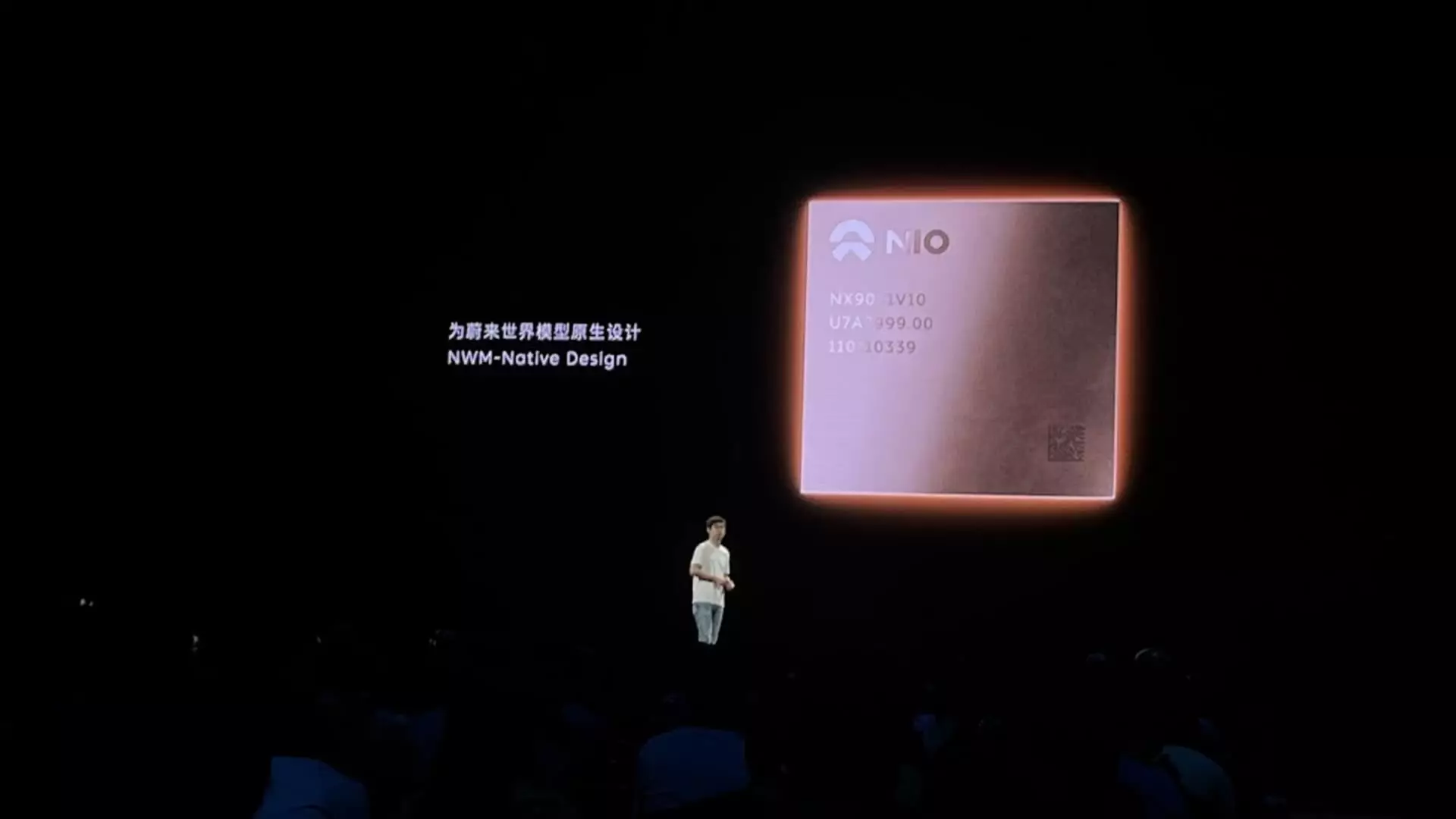In the rapidly evolving world of electric vehicles, Chinese car companies are not only engaged in a fierce price war but are also turning their attention towards developing their own chip-powered technological features, particularly in the driver-assist function segment. This shift marks a significant departure from the reliance on external suppliers such as Nvidia and Qualcomm, as companies like Nio and Xpeng are now announcing the readiness of their in-house designed auto chips for production.
According to experts in the industry, the decision to design their own chips allows Chinese electric car companies to differentiate their products from competitors who use the same silicon chips for powering their infotainment and intelligent driving systems. By customizing features and reducing supply chain risks from geopolitical tensions, automakers like Nio and Xpeng are positioning themselves for greater autonomy and innovation in the electric vehicle market. This move also aligns with the success of Tesla, which shifted from Nvidia to its own chip for advanced driver-assist functions in 2019.
Companies like Nio have been pioneering the development of automotive-grade chips utilizing highly advanced production technologies like the 5 nanometer process. This cutting-edge technology represents a breakthrough in the Chinese automotive industry, allowing for enhanced performance and capabilities in intelligent driving systems. Xpeng, on the other hand, is known for its driver-assist technology and is leveraging its Turing chip to further strengthen its position in the market.
While some Chinese automakers are ramping up efforts to develop their own chips, partnerships with established tech giants like Nvidia remain crucial. Xpeng’s close collaboration with Nvidia underscores the importance of synergies between companies to drive innovation and competitiveness in the industry. Giants like BYD are also recognizing the significance of semiconductors in the development of smart connected vehicles, emphasizing the role of chips as the foundation for the industry’s evolution.
Government incentives and subsidies have played a pivotal role in accelerating the adoption of electric vehicles in China, with new energy vehicles accounting for over 50% of new passenger cars sold in the country. This shift towards sustainable transportation is reshaping industry standards and driving innovations such as digital key technologies that enhance user experience and security. Companies like Nio, BYD, and Huawei are at the forefront of defining future standards for tech integration in vehicles, signaling a new era of connected and intelligent transportation.
As Chinese electric car companies continue to push the boundaries of innovation in the industry, the shift towards in-house-designed chips represents a strategic move to enhance competitiveness and drive technological advancements. By leveraging cutting-edge technologies and strategic partnerships, these companies are poised to shape the future of electric vehicles and set new standards for smart, connected transportation. The evolution of the electric vehicle market in China reflects a broader trend towards sustainable mobility and digital transformation, paving the way for a new era of smart transportation solutions.

Leave a Reply